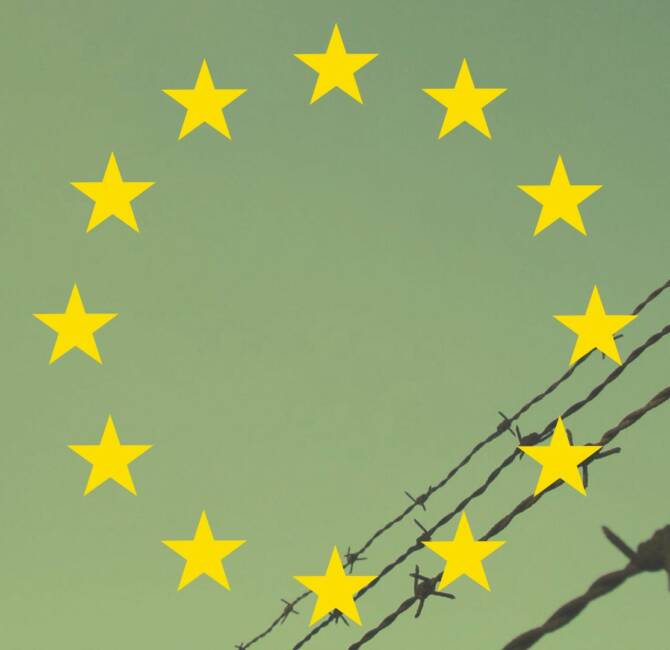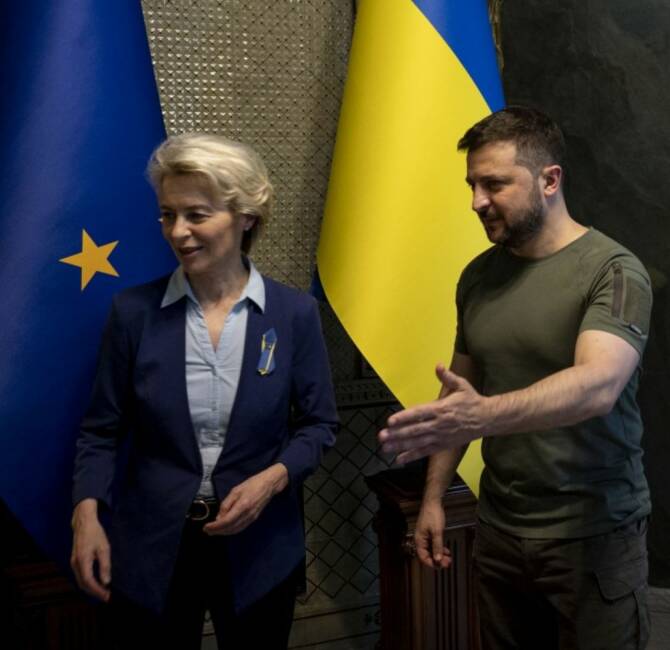The concept of the Intermarium, a regional cooperation entity between the Baltic, Adriatic and Black Seas, resurfaced in 1989. The author, an American of Polish origin, lists what remains to be done to turn this concept into a success.
An article by Marek Jan Chodakiewicz, published originally on Sovereignty.pl. To read the full version on Sovereignty.pl, please click here.
Vladimir Putin has recently opined on alleged Polish plans regarding the war in Ukraine. It is to restore Poland’s empire, the Intermarium. The Intermarium, or lands between the Baltic, Black, and Adriatic Seas, emerged first as a viable geopolitical concept under the Jagiellonian dynasty, Grand Dukes of Lithuania who became the kings of Poland, in the 15th and 16th centuries. The area receded into obscurity along with the decline of the Polish-Lithuanian Commonwealth in the 18th century. It briefly returned to local prominence in the wake of the First World War and the dissolution of the Russian, Austro-Hungarian, and Prussian/German Empires. It was soon crushed by the Third Reich and the Soviet Union.
However, the Intermarium, as cooperative or even a federative entity, once again reemerged in theory and practice after 1989. What can be done to make it a success? There must be regional solidarity. Toward that end, there should be a comprehensive integration of all interested parties, including at the grassroots level. Some of these processes have already commenced because of, and despite of, the war in Ukraine.
(…)
After 1989, as the lands between Baltic, Black, and Adriatic seas regained their freedom, some have once again circled back to the idea of regional unity and cooperation. On their own, the denizens set up the Visegrad Triangle, later Quadrangle, and, finally, Group (Poland, Czechia, Hungary, and Slovakia) – and other such region combinations. Overwhelmed as they were by the vision of the European Union, they lacked their own vision and resources, though the heart was in a right place.
Naturally, Brussels and Berlin have long looked askance at alternative ideas and structures, such as the Intermarium, that may be perceived as competition to the EU. No help was therefore forthcoming to foster the revival of the region on its own terms.
The United States deferred to the UE understood as primarily “Western Europe”. Until recently, Washington largely ignored the post-Soviet zone, including the Intermarium. The exception was NATO and the services rendered by most of the nations there to the US-led “War on Terror.” The Intermarium became the “New Europe” in the parlance of American diplomacy, albeit rather briefly.
This rhetorical device served more to stick it to the Western Europeans, the French and Germans in particular, rather than to pursue a constructive, long-term policy toward the lands between Baltic, Black, and Adriatic seas. America continued to perceive the region primarily through the prism of Brussels, Berlin, and Moscow.
That changed to an extent in 2016. The concept of the Intermarium started gaining traction at the White House. There were two main priorities.
First, strengthening NATO’s eastern flank militarily against Russia’s anticipated aggression would allow the United States to move its resources to, and focus on, the Pacific to counter China.
Second, investing in the Intermarium’s infrastructure to create an energy hub in Poland, Croatia, and Bulgaria to be supplied with American gas and oil would be the best way to provide energy security for the European Union and its neighbours. It was a win-win situation for everyone. The Americans would make money, and the Europeans would ditch their energy dependency on Russia.
Unfortunately, after the election of 2020, the new American leadership abandoned the plan. Washington attempted to placate Germany and to cozy up to Moscow. However, following the Kremlin’s invasion of Ukraine in 2022, the narrative changed again.
The Intermarium is back in good graces as a conduit of American (and other) assistance to fight the war in Ukraine. This entails certain American investments but mostly in military related issues. That is not enough for the region and it is obvious that the White House lacks any long term strategy there.
The governments of central and eastern Europe should concentrate on taking advantage of the situation to translate this fleeting military interest into more permanent American security and investment commitments.
All nation states in the region should endeavour to conclude as many unilateral deals with the United States as possible. They should go beyond military matters and concern trade, infrastructure, and other projects.
Further, these nations should coordinate amongst themselves to act as a block to encourage the US to get used to dealing with them as a united entity of the Intermarium with interests in common. There is no need at the moment to involve everyone in the region, but eventually it may be very efficacious to do so. For example, the Baltic states can act alone vis-à-vis the White House in matters concerning themselves only. However, if the matter is more universal, pertaining more than them alone, they should approach the Visegrad Group to join them for added weight.
(…)
There are some encouraging signs that solidarity has been emerging in the Intermarium. For example, in Brussels, the central and eastern European states have stubbornly insisted to bring to account Communist mass murder and other crimes. That does not sit well with many Western European leftists and other Marxist apologists, but so far the Intermarium block has held firm at the European Parliament.
Another sign of solidarity is that the same block tends to be America-friendly in the EU. One must therefore bemoan Brexit only on this account: Great Britain acted the same way as the Intermarium nations. Now, the British are gone and the Poles and others from the Intermarium are not enough to offset the Franco-German team’s current anti-Atlanticism.
However, the Brits are still in NATO. There should be as close cooperation within the Alliance as possible. Troops should rotate for military and cultural training. A month in Estonia by a Spanish soldier may help him grasp the danger of Russian imperialism. A stint in Portugal by a Czech border guard will amply demonstrate the threat on uncontrolled immigration from the Third World.
All in all, the Intermarium governments have their work cut out for themselves. And the common people? They should not allow their elected leaders to steal the show. It is not enough to vote for Intermarium-friendly politicians. The people should continue to be active, and expand their activities, on several levels.
First, local governments at the village and town level should reach out to their analogous counterparts in each of the Intermarium nations and create (or strengthen) a network of sister cities and sister hamlets.
Second, local chambers of commerce, businesses, and enterprises should follow suit. This should include gigantic state owned (or private – which is much less frequent in the region) conglomerates as well as tiny firms and everything in between. This is good for business and good for human contacts.
Third, there should be people to people diplomacy outside of government and business. For example, Croat teachers should travel to Latvia to compare notes. Hungarian kids should participate in high school soccer tournaments in Bulgaria. There should be locally endowed scholarships to study anywhere in the Intermarium one wants to.
Pretty soon, such grass roots endeavours can move from local and unilateral to regional and multilateral activities. Yet, the special relationships, forged at the bottom among and between the peoples of the Intermarium will endure and thrive. The bottom up ingredient is a crucial factor to foster regional solidarity.
Read the full article on Sovereignty.pl
The author is a Polish-American historian specializing in Central European history, especially of the 20th century. Professor Chodakiewicz is an author of many important works, among them: “The Massacre in Jedwabne, July 10, 1941: Before, During, After” and “The Civilization of Death: How to stop the anti-culture of totalitarian minorities”.




